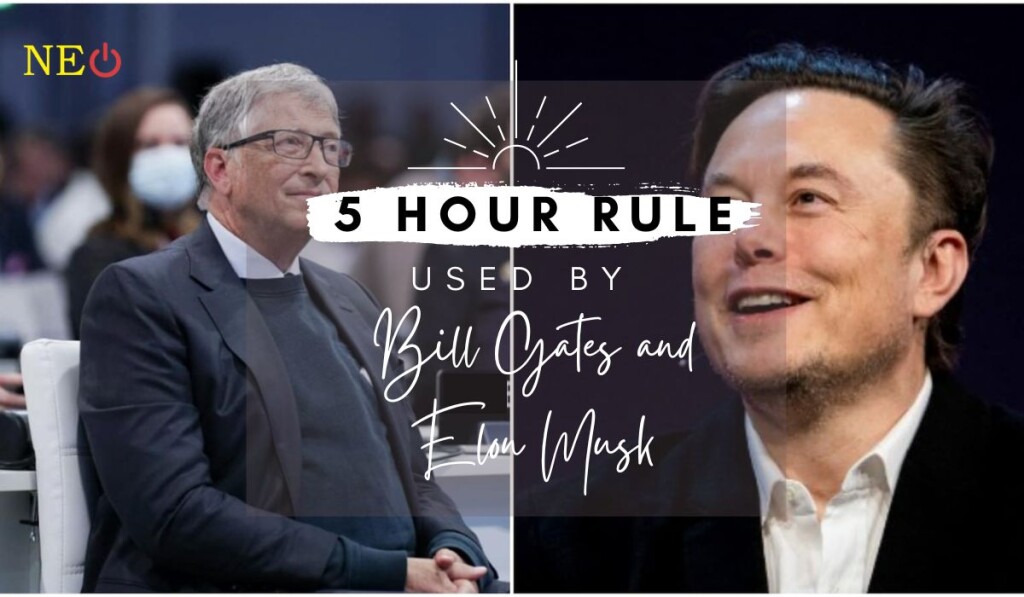The most successful people on the planet are also the ones that read and learning for an hour every day.
You've just come after a long day at work and entered the house. You only need a moment to gather your thoughts since you're exhausted and hungry. After grabbing a bite to eat, you relax in front of the TV. The next thing you know, you've just finished binge-watching the most recent Netflix series' five episodes.
Although we all need ways to unwind and shut down, it's not a good habit to get into. The most successful people in the world invest their free time in studying because of this.
Not exactly breaking news, either. Thomas Corley discovered that more than 200 self-made billionaires who were the subject of his five-year study don't watch television. In contrast, a staggering 86 percent said they read, but not simply for pleasure. Additionally, 63% of respondents said they listened to audiobooks on their morning commute.
There are numerous leaders who attribute their success to reading, including President Obama. Oprah Winfrey, Elon Musk, Mark Cuban, Jack Ma, Bill Gates, and Warren Buffett are all ardent readers. Reading is "one of the major ways that I learn, and has been since I was a child," Bill Gates said in an interview with The New York Times.
So how do they manage to read every day? The five-hour rule is followed by them.
What Is The 5 Hour Rule?

The 5 hour rule of learning can easily be accomplished by reading. Reading is, after all, one of the most well recognized ways to learn new things. But listening to audiobooks or taking online courses are other ways to follow the 5 hour rule. But let’s step back and offer a slightly more concrete definition of the 5 hour rule.
The 5 hour rule is almost hilariously simple. It was coined by Michael Simmons, an entrepreneur and journalist. It suggests that no matter how busy successful people are, they will spend at least an hour a day — or 5 hours a work week — learning or practicing. A key part of the rule is that they will consistently do this across time, forever. Lets say you are a 40 years old with three kids under 10 and are building a venture-backed company. The rule says that you will still dedicate one hour each day to learning (if you are following the 5 hour rule, that is).
The 5 Hour Rule’s Three Buckets

Over time, the rule has been given a bit more “meat on the bones”. Beyond the basic premise of dedicating an hour a day, or 5 per week, to learning or practicing, there is a three-step process to follow associated with the 5 hour rule:
Read
The first step or bucket involves reading. It is well documented that successful people read – a lot. This is how they learn new things, get exposed to innovative ideas, or learn about other industries and cultures. You can still follow the 5 hour rule by replacing reading with listening to an audiobook or podcast, or taking an online course.
Reflect
One you read or otherwise learn new information in bucket 1, you have to take some time to pause, reflect, and think deeply about it for it to be beneficial to you. You might read about a totally different industry, or perhaps about a successful historical figure. This new information can often be used to draw parallels that might help your own business or career.
Experiment
So you’ve read a book and learned something new, and you’ve thought about it and have some ideas for how it relates to your career or business. What next? True proponents of the 5 hour rule, those who are seeking to extract the most value from it, will experiment next. They will try something new with their next client, or try out a new online marketing strategy. They will take some sort of action to test their new ideas.
Who Uses The 5 Hour Rule?
Some of the world's most successful people seem to follow the 5 hour guideline. Elon Musk, Jack Ma, Mark Cuban, Bill Gates, and Warren Buffett are all avid readers who appear to adhere to the five-hour guideline. Others include billionaire investor and entrepreneur Paul Tudor Jones, Charlie Munger, and Barack Obama. In reality, according to Charlie Munger, every successful person adheres to the five-hour rule to some extent. Here are their comments regarding the five-hour rule:
“In my whole life, I have known no wise people (over a broad subject matter area) who didn’t read all the time — none. Zero.”
— Charlie Munger, Self-made billionaire & Warren Buffett’s longtime business partner
Results of Applying The Five-Hour Rule

Proponents of the 5 hour rule understand that intellectual capital is becoming more powerful than financial capital. Technology is changing and improving at an almost unfathomable pace. This means that an above-average ability to make connections, see new linkages, or get ahead of a new trend with $1,000 in the bank can be more valuable than $10,000 and a merely average ability to do these things.
Results of the 5 hour rule can include successful new business ideas, personal growth and development, new-and-improved skill, and more. However, the 5 hour rule also has indirect benefits. The time spent reading and reflecting can also help clear your mind and lead to better decision-making that is hard to link directly back to the rule itself.
Conclusion
The simplicity of the five-hour rule is what makes it so effective. How will you learn about new trends, procedures, or rivals if you are buried in the day-to-day tasks of responding to emails and managing never-ending little crises? Even if it takes a little longer to do simple activities, you'll gain enormous long-term rewards if you make learning new things a daily habit. Cheers to education!









